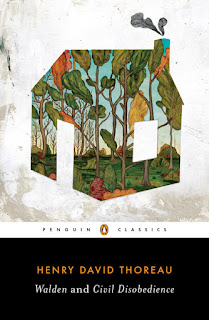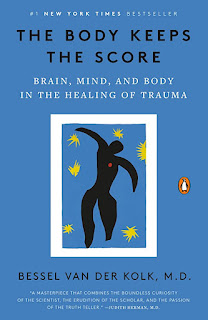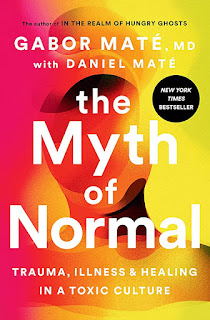‼️ Walden and Civil Disobedience by Henry David Thoreau ‼️
Rating: ⭐️⭐️⭐️⭐️⭐️
👉 Buy this book! 👈 through my link and help me build this website! 😊
Walden
“I went to the woods because I wished to live deliberately, to front only the essential facts of life, and see if I could not learn what it had to teach, and not, when I came to die, discover that I had not lived.”
What was my fist impression of Walden? Very poetic and rich in substance. I think this book is not meant to be rushed through, but enjoyed slowly as a bottle of a good port wine.
I’m saying this because I have to admit that to read it all in one week was a bit “hasty.” To be honest, I was very pleased with the content of this book. If read again, I would allow myself more time for its content “to sink in” and quietly contemplate on it.
So far, my domain were books about self-development. Does this one fall into a category of self-development? Yes, it does, with huge overlaps in other areas of human soul. I would dare to say this book is on the verge of economics, philosophy, personal development, self-knowledge and spirituality. To understand it, we have to get to know its author first.
A typical American supporting Vietnam war would say: “Henry David Thoreau was a goddamm hippie!” And he would be right! Thoreau wrote Walden during the period of 2 years when living by himself in a self-built cabin by Walden pond, near Concorde Massachusetts.
I would even say that Thoreau lived a life of a buddhist monk, during this period. He lived simply, concerned himself little with money (declined to pay taxes and later was imprisoned on this stance for 1 day) and focused on observation of nature and his surroundings.
In recent years it has become popular for young people to go to ashrams (monasteries) in Nepal, Tibet and the similar. Surprisingly, Thoreau lived such a life in 1850’s on the West coast. He surprised me as he made numerous references to the Bhagavad Gita, classic greek works (such as Homer’s Iliad) and middle-eastern philosophical works. I recon he was very educated for his time. As I would not expect some American in 1850’s to know the Bhagavad Gita and the ancient Indian Vedas (no offence).
His story is no less than inspirational. I also liked how Thoreau puts importance on free mind and thinking (“one shall think for himself and not for others”). No wonder it is being read in American schools. Now, let’s dive into the content!
The chapter I liked the most was at the very beginning of the book. The chapter concerned itself with economy.
The Vogue:
The primary purpose of clothes is to keep us warm. A coat for 5 USD will do the job as well as some expensive garment. But the vogue changes constantly (if somebody, let’s say Megan Markle puts on a nicely decorated hat other people will want the same hat as well). Here Thoreau states: “One should keep his common sense to himself.”
Do not get me wrong. I do like nice clothing and sometimes I do spend quite a lot of money on my appearance. But ability to resist trends and focus on substance not on appearance is what Thoreau has in mind. Our vision does not penetrate the surface of things.
He also points out that our vision often does not penetrate the surface of things.
The Houses:
People in big cities work to pay a rent, it steals half of their wealth. It shall be considered a modern day slavery.
Here is the point I liked the most in this book. Thoreau tells a story of how he has chosen a lot for his cabin. He built his cabin by himself and bought a piece of land with Walden pond. He even breaks down his carefully recorded expenses for the material and husbandry (an old-fashion word for agriculture).
He came to the conclusion that if one lives modestly, he can to afford his own house or farm for one year’s salary. To live modestly means to give up luxurities (even such as tea or coffee). Let me just say, it is sad there are people in today’s society who cannot live without Starbucks…
He also speaks of people (mainly farmers) who are burdened by their luxurities and opulent lifestyles. People also tend to rent houses bigger than they can pay for or they need at the first place. Eventually, they become slaves of their own property (which is the principle I have already stressed in the book called The Millionaire Next Door).
But the one who lives modestly can also live freely as he is not bound to pay rent or mortgage etc. Such person has more free time than the others.
I have to say, I do agree with author on this stance. Especially in the big cities, properties are own by who knows who and your life eventually becomes a rat race. Pointless rat race as on the end of it you won’t own any property and you are going to be exactly where you were many years ago.
Pay attention to whom are you paying and how much. You do not need any formal education to figure it out.
His message here is: “Be content with less and you shall be happy and free of this condition (capitalism).”
Another example comes with furniture. Why do we need expensive furniture or furniture at all? As furniture is only a burden when moving from one place to another.
Another Thoreau's thought I liked very much was what he spoke about the essence of the the facade of the house. A house has to be stripped of facade to its mere foundation. By this he means the true substance or matter of things. We shall look on what is really important and decisive, not on the surface of things.
The book makes me to think about Steve Jobs. Although he was very wealthy, he lived simple (zen monk like) life.
Morning routine
Thoreau mentions his morning routine. In his perception is the morning the clearest part of the day. It speaks about awakening. He bathed in his pond in the morning as a part of the ritual.
Simplicity is at the cornerstone of Thoreau’s book. Meditate, simplify… 🧘♂️
Another personification I liked very much was the one about the railroads build by Irishmen. Irishmen are sleepers covered in sand (on their toil stands the railroad). Trains then run over them (or more precisely, the rich ones).
Canadian woodchopper
The Canadian woodchopper who came to visit Thoreau saw world in one dimension. Hence the world was quite simple to him and Thoreau enjoyed multiple conversations with him.
Woodchopping warms one twice. Once we chop the wood and once we put the wood in the fireplace.
The origin of the name Walden
I was also interested in the origin of the name: Walden. I thought it might be of German origin as Der Wald means a forest. Although I was not right I was also not far away. The name Walden in of Anglo-Saxon origin and in the Old English the two words wealh and denu meant “foreigner” and “valley”.
Grant finale
In the finale of the book Thoreau urges his readers to explore their own souls. He says that the universe is wider than our views of it (does he mean to stay open-minded?). He sees his mind or consciousness as a cosmos worth exploring and Walden is a proof of it. 🙂
Walden is also referred in famous American movie called Dead poet society.
Conclusion:
Is this a book for just anybody? Certainly not. This is a book for people whose vision likes to penetrate the surface. This book is meant for liberal thinkers. It is also meant for people who like to enjoy long and poetic descriptions of nature and its four different seasons.
Long time ago, I have seen a movie. It was an asian film called Spring, summer, fall and spring. It is a story of buddhist monk who lives in a little house in the middle of the lake. One day, he is given unwanted child by a mother from a big city. The monk takes care of a little boy. When summer comes, a little boy is a grown up man. He argues with his master as he does not want to live the same life as he did. Grown up man then leaves for life in the big city. His heart is broken and in winter he comes back to the the little house on the lake. His master is long dead, the house has fallen into a big disrepair. He mends the house and carries on a life his master did as there was not more tho life than its seasons.
Thoreau’s book is different. It comes form a different country and different cultural background. But I still see similarities there. For example Thoreau describes Walden pond in different seasons and he has to say something to each of them. He quietens his mind and observes. He sits alone in solitude and explores mysterious corners of his own soul, which serves as a window to the external world and realities we live in.
It made me emotional…
Civil Disobedience
The Civil Disobedience is a short essay on Thoreau’s approach to the state administration which has developed in full scale political theory over time. To not make it complicated, Thoreau asks himself a question what an honest citizen should do when he disagrees with current state administration. In this case, Thoreau disagreed with American president who supported slavery and declared a full-scale war on Mexico and Great Britain.
Many people will just sit back, talk shit and do nothing (typical Czech behaviour). When the state is doing something what is against my will I should stand up and fight for myself. Disagree and not to take a part in state’s actions.
The example of this are Czech universities. As an overwhelming majority of Czech students sucks in foreign languages and are therefore incapable of studying abroad, they think that unfair, pompous communist behaviour of their Czech lecturers is acceptable. It is merely down to the fact that they have not seen any better. Let me point out that this is not acceptable. First and foremost, students shall fight back and refuse to be treated in communist like way.
Sadly, none of the students fights back. Students are afraid that if they will protest against communist establishment on Czech universities, the universities won’t give them their hard earned degrees.
Those bad communist teachers shall be sucked and retrained for some kind of work where they cannot do any harm. For they will have enough time to contemplate what they have done wrong.
I think we shall not just sit back and let others to do us harm. If they punch us, we must punch them back, take them down and destroy them completely.
Now and that is the meaning of civil disobedience for me. 😌
⭐️⭐️⭐️⭐️⭐️
👉 Buy this book! 👈 through my link and help me build this website! 😊
Coming up next:
George Orwell The Road to Wigan Pier
Feel free to like, share and comment or recommend books you find inspirational yourself. I’m keen to hear about them.
Peace 🧘♂️✌️🌱











Comments
Post a Comment